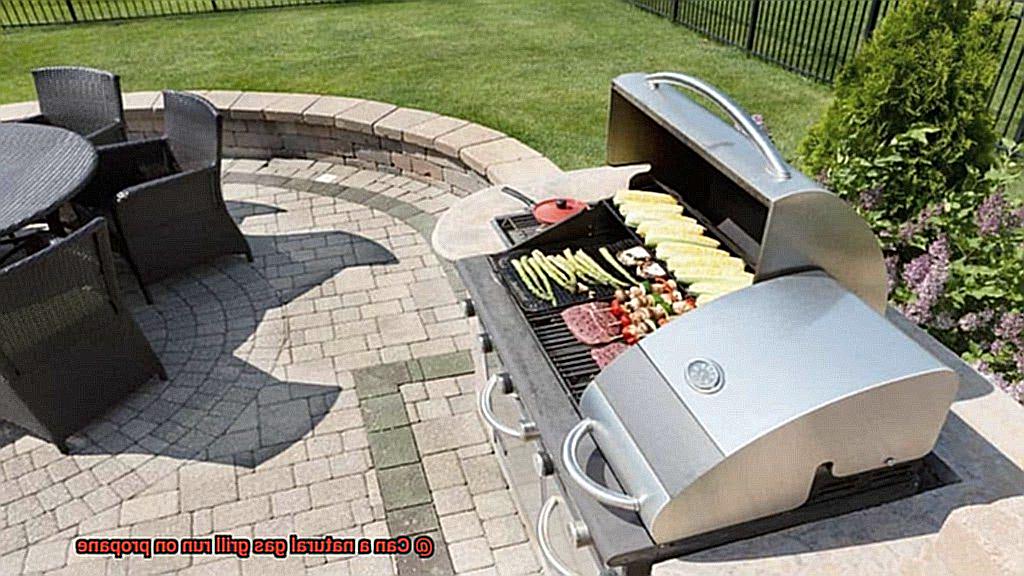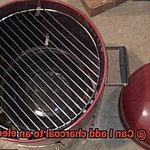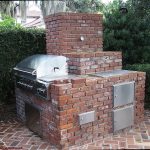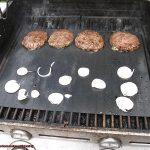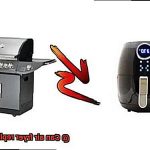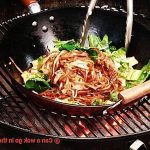Do you love the sizzling sound of food cooking on a grill? Are you someone who loves to entertain friends and family with your grilling skills? Well, if you’re a natural gas grill owner, have you ever considered using propane instead? It’s a question that’s been asked by many grill enthusiasts over the years, and the answer isn’t always clear cut.
But don’t worry, in this blog post we’ll explore the debate and uncover whether or not it’s possible to run your natural gas grill on propane. We’ll dive into the key differences between natural gas and propane, what equipment is needed for the switch, and most importantly, safety precautions to take before attempting to use propane in your natural gas grill.
It’s easy to assume that a gas grill can only use one type of fuel. But with the right tools and knowledge, converting from natural gas to propane is possible. We’ll guide you through each step of the conversion process so that you can confidently make the switch.
Whether you’re considering switching for economic or logistical reasons or simply want to experiment with different fuel options for your gas grill – this post has got you covered. So sit back, relax, and read on as we explore the exciting possibility of running a natural gas grill on propane.
Contents
The Difference Between Natural Gas and Propane
When it comes to grilling, there are two main fuel sources: natural gas and propane. While they may seem interchangeable, there are some important differences that you should know about.
Firstly, let’s talk about composition. Natural gas is mostly made up of methane, while propane is a liquefied petroleum gas (LPG) composed of a mixture of propane and other hydrocarbons. This difference means that propane burns hotter and more efficiently than natural gas, making it a popular choice for grilling. In fact, propane has a higher heating value, meaning it heats up faster and cooks food more quickly.
Moving on to the pressure and delivery system, natural gas is delivered through underground pipelines with low pressure. Propane, on the other hand, is delivered in pressurized tanks that can be easily refilled or swapped out. This means that natural gas grills require a direct connection to the natural gas pipeline, while propane grills use tanks that can be conveniently connected and disconnected.
If you’re considering converting your grill from one fuel source to another, keep in mind that you’ll need a conversion kit that includes a new regulator and orifices. However, not all natural gas grills can be converted to propane, so make sure to check with the manufacturer first.
It’s also important to note that converting your grill might affect its performance. Propane burns hotter than natural gas, which means that you may need to adjust your cooking times and temperatures accordingly. Additionally, propane tanks need to be refilled or replaced more frequently than natural gas lines need to be topped up.
Can a Natural Gas Grill Be Converted to Propane?
It’s important to know that while it is possible, it’s not as simple as just swapping out the fuel source. As an expert on this topic, I can tell you that not all natural gas grills are compatible with propane and that the conversion process should only be done by a professional.
One of the main differences between natural gas and propane is the pressure at which they are delivered. This means that propane grills require a higher pressure regulator than natural gas grills. When converting a natural gas grill to propane, the regulator must be changed to one that is compatible with propane. This change ensures that the propane fuel flows smoothly and at the right pressure to produce optimal heat output.
In addition, the orifices on a natural gas grill are typically larger than those on a propane grill since natural gas requires more volume to produce the same heat output as propane. Therefore, when converting a natural gas grill to propane, the orifices must be replaced with smaller ones to ensure proper fuel flow. This adjustment ensures that the correct amount of propane is delivered to the burners for consistent heating.
It is crucial to note that not all natural gas grills are compatible with conversion kits. Some manufacturers may not offer conversion kits for their grills or may specifically state that their grills should not be converted. Before attempting to convert a natural gas grill to propane, it’s important to consult the manufacturer’s instructions or seek professional advice. A professional can help determine if your grill is compatible and which conversion kit will work best.
Converting a natural gas grill to propane can affect its performance and require adjustments in cooking times and temperatures. That’s why it’s essential to have a professional handle the conversion process. They will ensure that the correct parts are installed and that everything is set up correctly for optimal performance.
Purchasing a Conversion Kit
Before you get started, it’s crucial to purchase a conversion kit that will make the process safe and successful. As an expert on the topic, I have some important considerations for you to keep in mind when shopping for a conversion kit.
Firstly, not all natural gas grills can be converted to run on propane, so it’s essential to check with the manufacturer before purchasing a conversion kit. Assuming your grill is eligible for conversion, it’s important to ensure that the kit is compatible with your specific grill model. Some manufacturers offer conversion kits specifically designed for their products, while others offer universal kits that may work with a variety of grills. Be sure to read product specifications and reviews carefully before making a purchase.
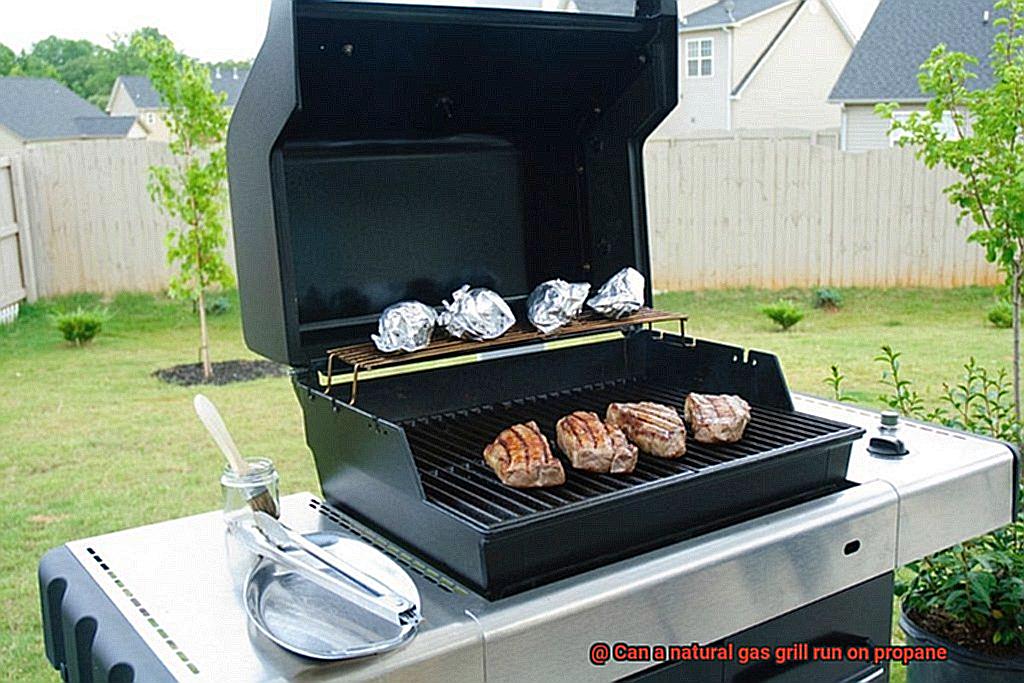
Another crucial consideration is quality. Cheaper kits may not be as reliable or durable as higher-end options. Investing in a high-quality kit will make sure that the conversion process is safe and successful. Additionally, a quality kit will likely last longer, saving you money in the long run.
Lastly, following installation instructions carefully is vital when installing the conversion kit. Improper installation can lead to dangerous situations such as gas leaks or fires. If you’re not confident in your ability to install the kit yourself, hiring a professional is recommended.
To summarize, purchasing a conversion kit is an essential step in converting your natural gas grill to run on propane. Remember to check compatibility with your specific grill model, invest in a quality kit, and follow installation instructions carefully for a safe and successful conversion process. Let’s get grilling.
For your convenience, here’s a quick checklist of things to keep in mind when purchasing a conversion kit:
Installing the Conversion Kit
It’s a smart move that allows you to enjoy the benefits of a propane grill without buying a whole new one. However, before you dive in, it’s crucial to know that this process requires installing a conversion kit – and not all grills can be converted. So, before proceeding, check your grill’s manual for compatibility.
Assuming you have the green light to convert your grill, let’s explore the steps involved in installing the conversion kit. Here are the key points to remember:
First, turn off the gas supply and disconnect the natural gas line from your grill. Safety first.
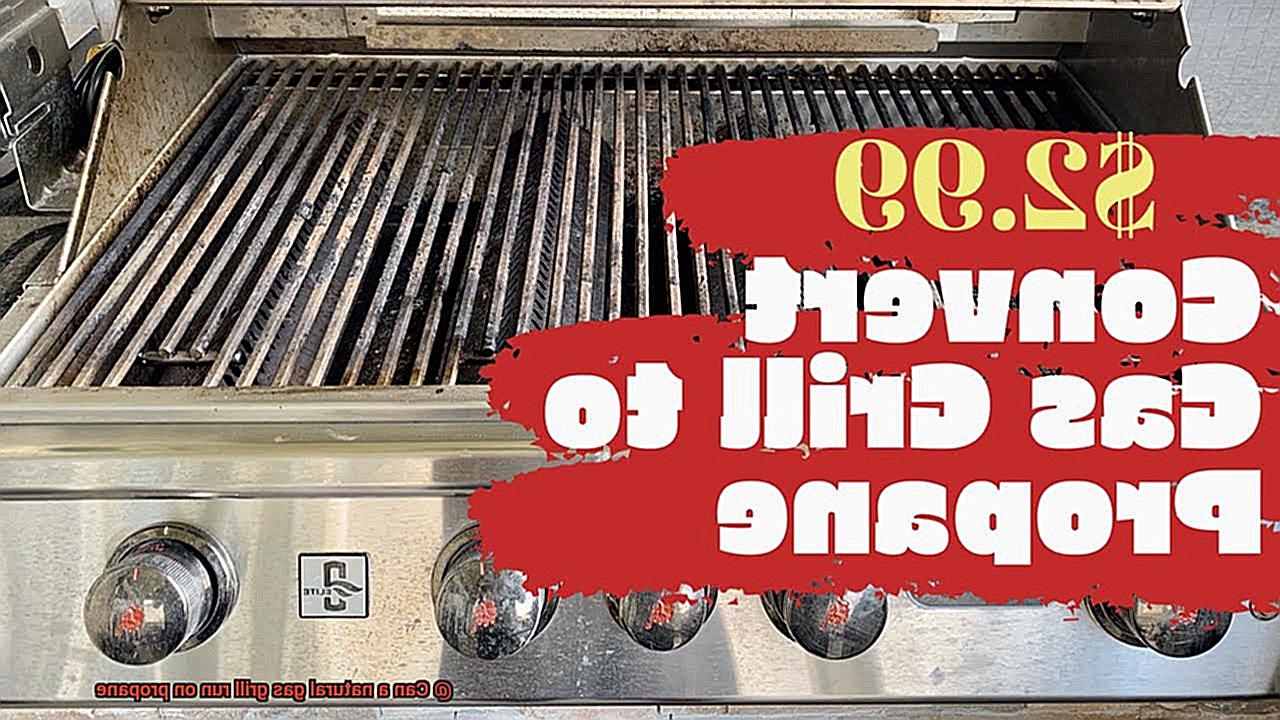
Next, remove the old orifices and regulator from your grill. These components control the flow and pressure of gas into the burners. The conversion kit includes new orifices and a regulator designed for use with propane.
Then, carefully install the new orifices and regulator provided in the conversion kit using a wrench to tighten all connections securely. Be sure to follow the manufacturer’s instructions precisely for safety and optimal performance.
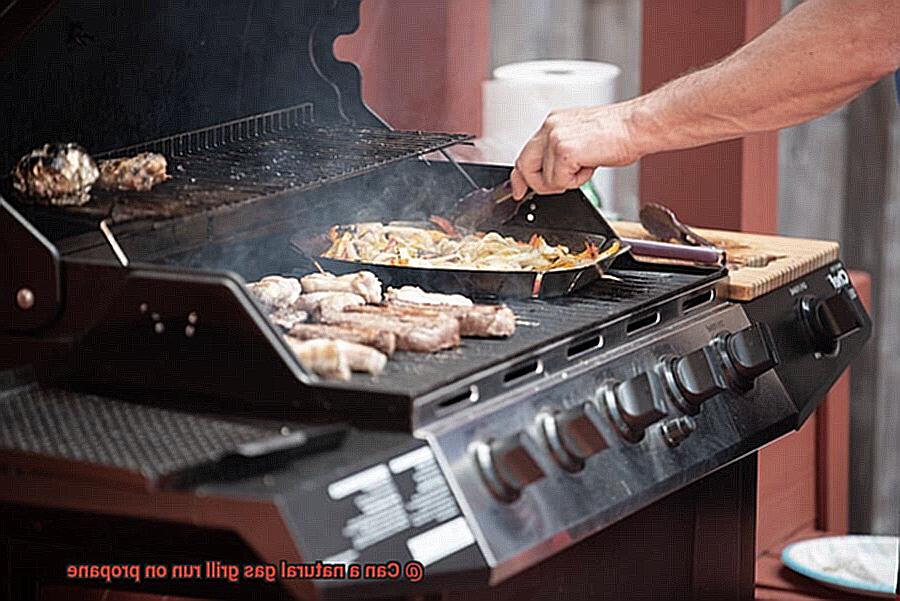
Finally, test your grill for leaks before using it. This is essential for safety reasons. Apply a solution of soap and water to all connections and look for bubbles, which indicate a leak. If you detect a leak, immediately turn off the gas supply and tighten any loose connections.
Testing for Leaks Before Use
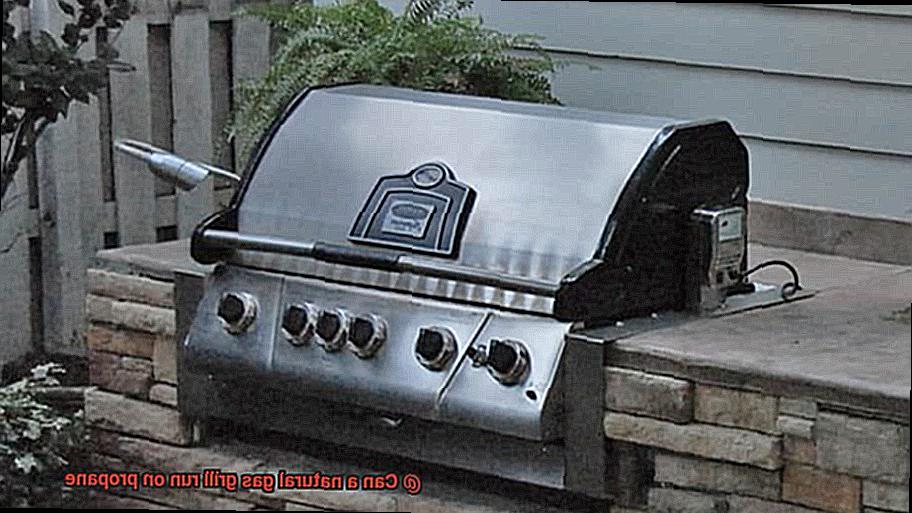
Before you start cooking up a storm, it’s imperative to ensure your safety by testing for leaks. Propane tanks have a different pressure rating than natural gas lines, so any leaks can cause serious hazards.
To test for leaks, simply follow these easy steps:
- Step 1: Turn off the propane tank and disconnect the hose from the grill.
- Step 2: Apply a solution of equal parts water and dish soap to the hose and connections.
- Step 3: Turn on the propane tank and keep an eye out for bubbles forming around the hose and connections.
- Step 4: If you spot bubbles, there is a leak. Turn off the propane tank, tighten any loose connections, or replace damaged hoses before using the grill.
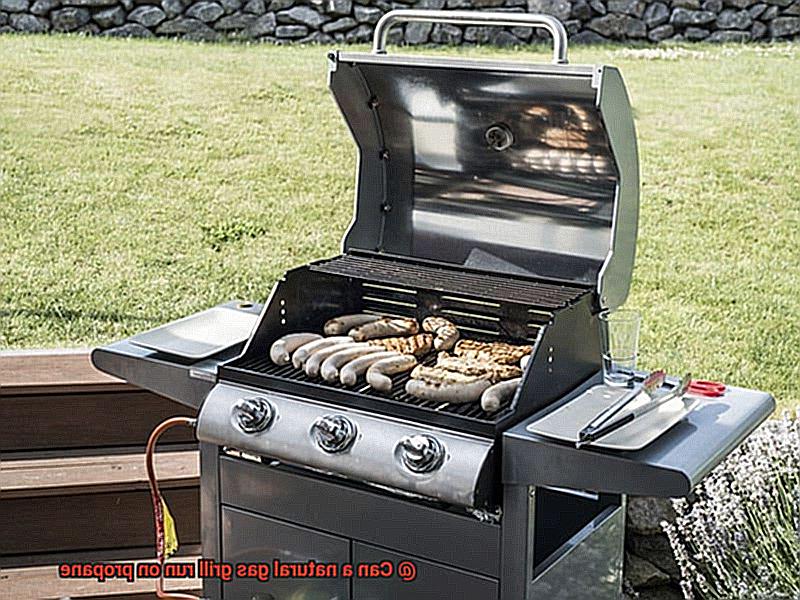
Remember that testing for leaks is not a one-time deal. You should perform this leak test every time you change or refill your propane tank to ensure safe grilling. Furthermore, always store your propane tanks in an upright position and away from heat sources such as direct sunlight or flames.
Performance Differences When Using Propane
As the temperatures rise and the sun shines brighter, grilling season is officially upon us. Whether you’re a seasoned grill master or a newbie to the game, it’s important to consider the type of fuel you’ll be using in your grill. While both propane and natural gas are popular options, there are some distinct performance differences to keep in mind.
First things first – can a natural gas grill run on propane? The answer is yes, but there are some key differences to consider. Propane boasts a higher BTU rating than natural gas, which means it can produce more heat per unit of fuel. As a result, propane grills offer faster preheating times and hotter cooking temperatures. However, it’s important to note that propane also burns faster than natural gas, so you may need to refill or replace your propane tank more frequently.
Another noticeable difference between the two fuels is in flame height. Propane produces taller flames than natural gas, which can give your food a more charred or caramelized exterior. This is great for certain dishes but may not be ideal for others. On the other hand, natural gas produces a more consistent flame height, which can be beneficial for cooking delicate foods that require precise temperature control.
If you’re considering using propane in a natural gas grill, it’s important to keep in mind that modifications may be necessary. Changing out the regulator and burner orifices will ensure that your grill operates safely and efficiently with the different fuel type.
So what does all of this mean for your grilling experience? Ultimately, it comes down to personal preference. If you’re looking for faster heating times and hotter temperatures, propane may be the better choice for you. However, if you value consistent flame height and precise temperature control, natural gas may be the way to go.
Before firing up your grill this season, make sure to prioritize safety by testing for leaks. Apply a solution of equal parts water and dish soap to the hose and connections, turn on the propane tank, and keep an eye out for bubbles forming around the hose and connections. If you spot bubbles, there is a leak that must be addressed before using the grill.
In conclusion, understanding the performance differences between propane and natural gas can help you make an informed decision when it comes to fueling your grill. To summarize, here are some key takeaways:
Refilling or Replacing Propane Tanks More Frequently
As grilling season approaches, it’s important to consider all the fuel options available for our favorite pastime. While many grill enthusiasts may wonder if it’s possible to run a natural gas grill on propane, it’s crucial to also consider the frequency of refilling or replacing propane tanks when making this decision.
Propane tanks come in two sizes – 20 and 30 pounds. Depending on the size of your grill and how often you use it, you may find yourself refilling or replacing your propane tank more frequently than you would with natural gas. Unlike natural gas, which is delivered to your home via a pipeline, propane requires trips to refill your tank or scheduling regular deliveries from your propane supplier.
If you decide to convert your natural gas grill to run on propane, it’s important to stay on top of your propane levels and plan ahead for refills or replacements. Keeping an extra tank on hand can be helpful in avoiding any last-minute trips to refill your tank.
However, cost is another factor to consider when deciding between natural gas and propane. Propane tends to be more expensive than natural gas, so you may end up spending more money in the long run if you choose to convert your grill. On the other hand, the convenience and flexibility of being able to move your grill around and not being tied down to a fixed gas line may outweigh this cost for some.
ZZ6ONK5rSTs” >
Conclusion
In conclusion, the answer to the question of whether a natural gas grill can run on propane is a resounding yes. However, it’s not as simple as just swapping out the fuel source. Propane is a popular choice for grilling because it burns hotter and more efficiently than natural gas. But converting your grill from one fuel source to another requires a conversion kit that includes new regulator and orifices.
It’s important to note that not all natural gas grills can be converted to propane, so always check with the manufacturer first. Converting your grill can affect its performance, requiring adjustments in cooking times and temperatures. That’s why it’s essential to have a professional handle the conversion process. They’ll ensure that all parts are installed correctly for optimal performance.
When purchasing a conversion kit, make sure it’s compatible with your specific grill model and of high quality. Testing for leaks before use is also imperative for safety reasons.
Ultimately, understanding the differences in performance between propane and natural gas can help you make an informed decision when it comes to fueling your grill. Whether you choose propane or natural gas, always prioritize safety first.

